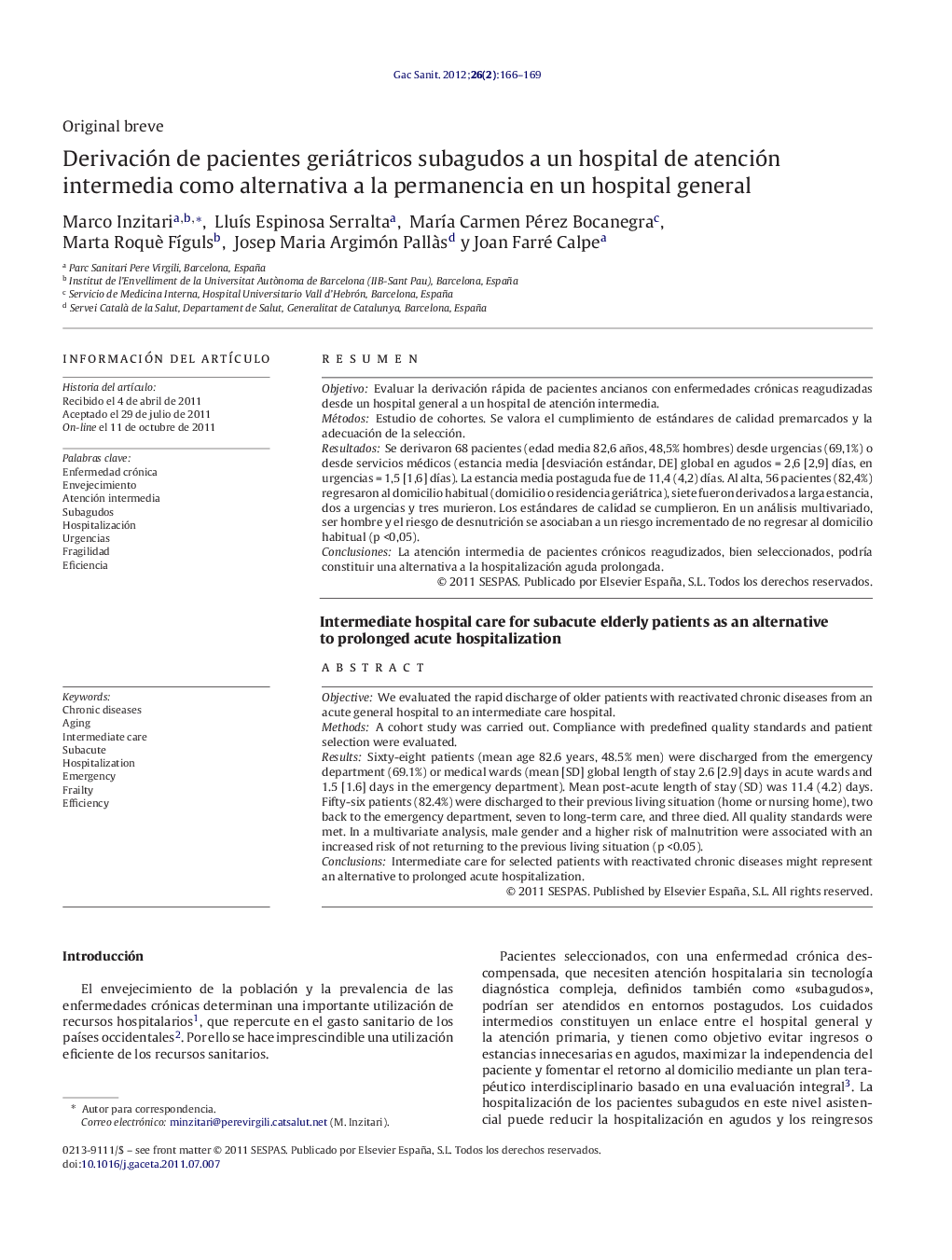| Article ID | Journal | Published Year | Pages | File Type |
|---|---|---|---|---|
| 1073861 | Gaceta Sanitaria | 2012 | 4 Pages |
ResumenObjetivoEvaluar la derivación rápida de pacientes ancianos con enfermedades crónicas reagudizadas desde un hospital general a un hospital de atención intermedia.MétodosEstudio de cohortes. Se valora el cumplimiento de estándares de calidad premarcados y la adecuación de la selección.ResultadosSe derivaron 68 pacientes (edad media 82,6 años, 48,5% hombres) desde urgencias (69,1%) o desde servicios médicos (estancia media [desviación estándar, DE] global en agudos = 2,6 [2,9] días, en urgencias = 1,5 [1,6] días). La estancia media postaguda fue de 11,4 (4,2) días. Al alta, 56 pacientes (82,4%) regresaron al domicilio habitual (domicilio o residencia geriátrica), siete fueron derivados a larga estancia, dos a urgencias y tres murieron. Los estándares de calidad se cumplieron. En un análisis multivariado, ser hombre y el riesgo de desnutrición se asociaban a un riesgo incrementado de no regresar al domicilio habitual (p <0,05).ConclusionesLa atención intermedia de pacientes crónicos reagudizados, bien seleccionados, podría constituir una alternativa a la hospitalización aguda prolongada.
ObjectiveWe evaluated the rapid discharge of older patients with reactivated chronic diseases from an acute general hospital to an intermediate care hospital.MethodsA cohort study was carried out. Compliance with predefined quality standards and patient selection were evaluated.ResultsSixty-eight patients (mean age 82.6 years, 48.5% men) were discharged from the emergency department (69.1%) or medical wards (mean [SD] global length of stay 2.6 [2.9] days in acute wards and 1.5 [1.6] days in the emergency department). Mean post-acute length of stay (SD) was 11.4 (4.2) days. Fifty-six patients (82.4%) were discharged to their previous living situation (home or nursing home), two back to the emergency department, seven to long-term care, and three died. All quality standards were met. In a multivariate analysis, male gender and a higher risk of malnutrition were associated with an increased risk of not returning to the previous living situation (p <0.05).ConclusionsIntermediate care for selected patients with reactivated chronic diseases might represent an alternative to prolonged acute hospitalization.
